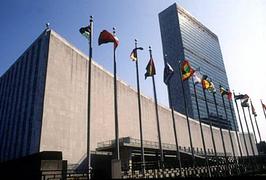
The 2010 High-Level Plenary Meeting of the UN General Assembly on the MDGs requested the Secretary-General to initiate thinking on a post-2015 UN Development Agenda. This is likely to lead both to revising the present goals and to broadening them towards new fields, such as environment, climate change or security. The new framework is also expected to formulate universal goals and responsibilities.
However, universality should not lead to neglecting the high heterogeneity of countries, in particular the specific challenges of the most vulnerable developing countries, the first being the least developed countries (LDCs), as well as small island developing states (SIDS) and landlocked developing countries (LLDCs). Targets 8B and 8C of MDG 8 (“Develop a global partnership for development”) address international support for LDCs, LLDCs and SIDS but are limited in scope.
There are three main reasons to take into account the specificities of LDCs, LLDCs and SIDS in the Post-2015 development agenda :
• first, one of the lessons drawn from the implementation of MDGs is that these goals had been designed too uniformly, without taking into account the heterogeneity of different groups of countries in the developing world. This explains to a large extent several gaps in implementation, in particular the limited results in the LDCs;
• second, it would not be consistent to design goals from a sustainability perspective without simultaneously considering vulnerabilities affecting more specifically some groups of countries. In fact, structural economic vulnerability is one of the three main criteria used for the identification of LDCs, while environmental vulnerability, in particular vulnerability to climate change, is strongly affecting the SIDS, as well as the LDCs and the LLDCs;
• finally, needs of these specific groups of countries have been recognized by the international community and commitments have been taken within the United Nations, noticeably at the Fourth UN Conference on LDC in Istanbul in 2011. Forgetting these specific needs and commitments would compromise the credibility of a Post-2015 Development Agenda.
To examine these questions and the situation of the most vulnerable countries in the post-2015 agenda, OHRLLS and Ferdi, together with the French Government, the Government of Burkina Faso, the OECD and its Development Center and the LDC IV Monitor have organized an event in New-York. The event provided an opportunity for Permanent Representatives from LDCs, LLDCs and SIDS to interact with representatives of the High-Level Panel and other experts on the specific vulnerabilities they are facing and how the new development partnership should address them.
Main speakers were :
Gyan Acharya, Under-Secretary-General, High Representative for LDCs, LLDCs and SIDS (OHRLLS); Lucien Marie Noel Bembamba, Ministre de l’Economie et des Finances, Burkina Faso; Haroon Bhorat, Professor, Research specialist for the Secretariat of the HLP; Nathalie Broadhurst, Sous-Directrice des Politiques du Développement, Direction générale de la Mondialisation, du Développement et des Partenariats, Ministère des Affaires étrangères, France ; Patrick Guillaumont, Président de la Ferdi, Professeur émérite; Federico Bonaglia, Head, Policy Dialogue Division, OECD Development Centre; Nicola Crosta, Head, Policy and Advocacy, UN Capital Development Fund; Maurice Kugler, Head of the research team, Human Development Report Office, UNDP.
• en premier lieu une des leçons tirées de la mise en oeuvre des OMD est que ceux-ci avaient été définis de façon trop uniforme, sans prendre en compte les situations initiales, ce qui explique dans une large mesure les écarts dans leur réalisation, notamment les moins bons résultats observés dans les PMA;
• en second lieu il ne serait pas cohérent de concevoir les objectifs dans une perspective de durabilité sans prendre en compte simultanément les vulnérabilités des pays, lesquelles affectent plus particulièrement certains d’entre eux : la vulnérabilité économique structurelle est un des trois principaux critères de définition des PMA, cependant que la vulnérabilité environnementale, en particulier la vulnérabilité au changement climatique, affecte les SIDS fortement, les PMA tout aussi bien et les pays enclavés;
• enfin, récemment encore, les besoins spécifiques de ces groupes de pays ont été reconnus par la communauté internationale et des engagements pris à leur égard dans le cadre des Nations unies, notamment lors de la 4ème Conférence des Nations unies sur les PMA, tenue à Istanbul en 2011 : oublier ces besoins et ces engagements spécifiques compromettrait la crédibilité des nouveaux engagements.
Pour examiner ces questions et la place des pays en développement les plus vulnérables dans le futur agenda post-2015, l’OHRLLS et la Ferdi, en collaboration avec le gouvernement français, et le gouvernement du Burkina Faso, l’OCDE et son Centre de Développement, et le LDC IV Monitor ont organisé un évènement à New-York.
Cet évènement a offert aux Représentants permanents des PMA, des pays en développement enclavés et des petits Etats insulaires en développement l’occasion d’échanger avec des membres du panel de haut niveau sur les vulnérabilités spécifiques auxquelles ils font face et sur la façon dont le nouveau partenariat pour le développement devrait y répondre.
Les principaux intervenants étaient :
Gyan Acharya, Under-Secretary-General, High Representative for LDCs, LLDCs and SIDS (OHRLLS); Lucien Marie Noel Bembamba, Ministre de l’Economie et des Finances, Burkina Faso; Haroon Bhorat, Professor, Research specialist for the Secretariat of the HLP; Nathalie Broadhurst, Sous-Directrice des Politiques du Développement, Direction générale de la Mondialisation, du Développement et des Partenariats, Ministère des Affaires étrangères, France ; Patrick Guillaumont, Président de la Ferdi, Professeur émérite; Federico Bonaglia, Head, Policy Dialogue Division, OECD Development Centre; Nicola Crosta, Head, Policy and Advocacy, UN Capital Development Fund; Maurice Kugler, Head of the research team, Human Development Report Office, UNDP.